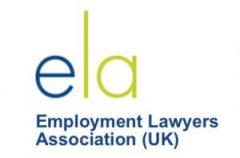In the latest of our podcast series, Richard Rodway from our Family & Divorce team and Helen Fraser, an Independent Financial Adviser from Orchard House, talk about the financial aspects of a divorce or the dissolution of a civil partnership. What people need to be prepared for, what they need to consider, and the implications after the marriage or civil partnership ends.
Listen to our podcast by clicking the link or read the transcript below.
https://thppodcasts.simplecast.com/episodes/the-financial-aspects-of-divorce-or-dissolution-x5MJaMXG
Q: When in the divorce process or dissolution of a civil partnership should people start talking to an Independent Financial Adviser or Solicitor?
Helen: For some people talking to an IFA right at the beginning can be useful. There will be a lot of financial information that will need to be gathered and submitted and having an idea about what will be required and how to find this information can be useful to know from the start. Others might involve an IFA if there is a question about income needs. For others, it may be towards the end when a pension share is being agreed or needs to be implemented or a financial plan for the future needs to be worked out.
Richard: It’s as soon as possible really. People seldom come to me seeking a divorce per se. Normally it’s a case of the relationship having broken down, they are uncertain as to the future, and are seeking some certainty, security and assurance. The divorce becomes a means to that end. We’ve got to try and sort things out and reach an agreement over financial matters, and if we can reach an agreement, we can enshrine it in a Court Order as part of the divorce to ensure that it is binding, without anyone having to attend Court. Similarly, if a couple cannot agree a financial settlement, the divorce becomes the means to resolve things, by asking the Court to intervene and decide matters. But coming back to your question, it’s as soon as possible, because people need to start gathering information sooner rather than later, to assist them getting a handle on what the future holds and what the solution may looks like.
Q: And so, what do people need to disclose in terms of their finances?
Helen: So, both parties will need to be prepared to disclose everything. This includes property, bank accounts, investments, pensions and business assets. Your solicitor will talk to you about what needs to be disclosed. An IFA or your solicitor can give guidance about how to find the information that is needed.
Richard: Basically, it’s about equipping people with the information they need so that they can make informed decisions about what is a fair settlement. So, we need to have evidence of all of the figures that go into the matrimonial balance sheet really. Everything from bank statements confirming paper trails on current bank balances to investments, pensions and property valuations. Once we collate all of that information, and sometimes that can raise as many questions as it does provide answers, then we can start to make an informed call as to what the solution is.
Q: And as part of the divorce or dissolution part of the process people will need to work out what their current and future expenditure is. Do you have tips on how to do this?
Helen: This can actually be quite a difficult part of the process even though it sounds easy as people often haven’t had to analyse their income and expenses in any depth before. There is a useful budgeting tool on the government MoneyHelper website that is free to use and can help you to remember everything that you spend your money on, day-to-day expenditure as well as one-off annual expenditure. This can be a good place to start. However, for some people taking a book out with them and writing down everything they spend money on can be just as helpful. If you have access to bank statements then these are always a good starting point, but do not forget expenses and bills that you don’t currently pay for, but you will need to once you are on your own. There may also be new costs such as life insurance or a mortgage that may be needed for the first time. An IFA can help you think through everything you may need to include in your expenditure.
Richard: It is so often about what people need as the starting point really. So, as Helen says, you need to give it some careful consideration and use the tools that are out there to get a handle on what you need. What you need might not be what someone else needs, each family/couple/individual are different, and their needs are different . It’s important to ensure that any list of your needs is comprehensive but without it turning into a wish list, which can be counterproductive. Ultimately, we have to recognize that we will have two households now, funded by a pot, that used to fund one. So, to a certain extent, everyone is going to have to cut their cloth, but it is about making sure that as a starting point, we have a comprehensive and reasonable idea of what we need.
Q: So how does someone doing through a divorce or dissolution work out if they can get a mortgage based on their income?
Helen: Speaking to a mortgage adviser can help give you the facts and figures that you need, and a good mortgage adviser can also talk you through the different mortgage options that are available to you. At Orchard House (IFAs) Ltd we have a mortgage expert who can help you understand your mortgage capacity once you are on your own and can produce a report that can be used as evidence
Q: I understand there can be a tendency for people to forget pension during the divorce or dissolution process despite them being a sizeable amount of the asset point?
Helen: it is really important that you include pensions as part of the finances when considering ending a marriage or civil partnership. They can seem daunting, so talking to an IFA can be helpful so that you can understand the different types of pensions that are being included. Your solicitor may also suggest that you request a joint pensions report where a Pensions On Divorce Expert gives their view to help you understand how pensions can be shared. Pensions can sometimes be one of the biggest financial assets to be considered so need to be included.
Richard: As Helen said, pensions are an asset that needs to be shared like any other. We talk about income needs and cash flow analysis, and housing needs and therefore what someone’s mortgage capacities are, but people also need to look at their retirement planning. Therefore, it’s important to make sure there is a fair pension pot available to both of them post-divorce, so they need to look at the pension assets and understand what a fair sharing is, not just in terms of the capital value but more importantly what those pensions are going to generate for the both of them.
Q: What are the options for pensions when a marriage or civil partnership ends?
Helen: There are three main options that are available. There is more information on the government Money Helper website. The three options are:
- Offsetting
- Attachment Orders
- Pension Sharing Orders
Richard, you’ve got some thoughts on those options…
Richard: Absolutely. Typically, I find myself dealing with pension sharing orders, particularly where we are sharing assets that are not going to materialise until many years into the future. The beauty of pension sharing orders is that pension assets are divided now, so you have something now that you take away and it matures and accrues in its own right independently of your spouse and their pension.
Whereas with pension attachment order or earmarking, as the name suggests, you are attaching and earmarking part of your spouse’s pension when it accrues in the future. But that can create problems depending on what happens to you in the future, what happens to your ex-spouse, and indeed their pension between now and then. And the other option is offsetting. I think ideally there should be a fair sharing of all types of assets, be that pension or non-pensions assets, but obviously it’s about what’s right for a particular couple.
In some instances, they may wish to trade some pension in exchange for more cash and in which case that becomes a matter of financial advice as to what is a fair trade-off recognizing that £100k of pension fund may not be the same as £100k in cash. That will change from pension to pension, and the particular circumstances of the parties. So again, that’s where independent financial advisers and solicitors can really work together to get the best and right deal for someone.
Q: So how long does the process take to get a financial order?
Richard: To a large extent it depends on how quickly two people can agree something. If we think about the divorce process itself as the starting point, if you commence divorce proceedings, you would be able to apply for what’s known as a Conditional Order for divorce 20 weeks after the divorce proceedings were started.
Once you have got your Conditional Order, which is typically 4 weeks thereafter, at that point you can say to the Court “This is what we have agreed in relation to finances. Please judge can you make an order on those terms?”. The judge will be presented with a brief resume of the financial circumstances so that they can exercise their discretion as to whether or not to approve the settlement. It may not be what the judge would have done if they had been left to their own devices, but if the deal seems fair, they will approve the financial settlement and make an order on those agreed terms. So, by definition you would be in a position, potentially, to ask the court to do that six months down the line, and the hope of course is that during that time negotiations and discussions have played out well between the parties and we’re ready at that six month point to upload our financial agreement to the court portal (I used to say it’s a paper exercise but now it’s an online portal exercise).
But of course, it may be that the parties involved sort things out in a matter of weeks and then they are waiting for the divorce to catch up, similarly, negotiations can be protracted and if there is an impasse for whatever reason and you have found yourself having to make an application to the court for them to determine things, and then those proceeding ultimately end up in a trial with a judge making a decision, then you could easily be 18 month/ two years down the line or even longer. So given the length of time proceedings can take and given how much it can cost as a result, it is far better for people to take good advice early on so parties can have informed discussions sooner rather than later, and hopefully with things cost effectively, reasonable swiftly and by agreement.
Q: What happens once the divorce is finalised or my civil partnership has ended?
Helen: It can be useful to sit down with your IFA to review your settlement and start making plans for the future. There may be a need for advice on how to provide income, taking out a mortgage, making investments or reviewing your protection. Your IFA will work with you at your pace to help you develop a robust plan for the future that suits your needs, taking into account your new circumstances.
Thank you Richard and Helen for joining me today to talk about some of the financial considerations people need to think about if they are going through a divorce or the dissolution of a civil partnership. You can find out more about Richard Rodway and his Family & Divorce team at www.thpsolicitors.co.uk and Helen Fraser is at Orchard House which is at www.orchardhouse.co.uk









